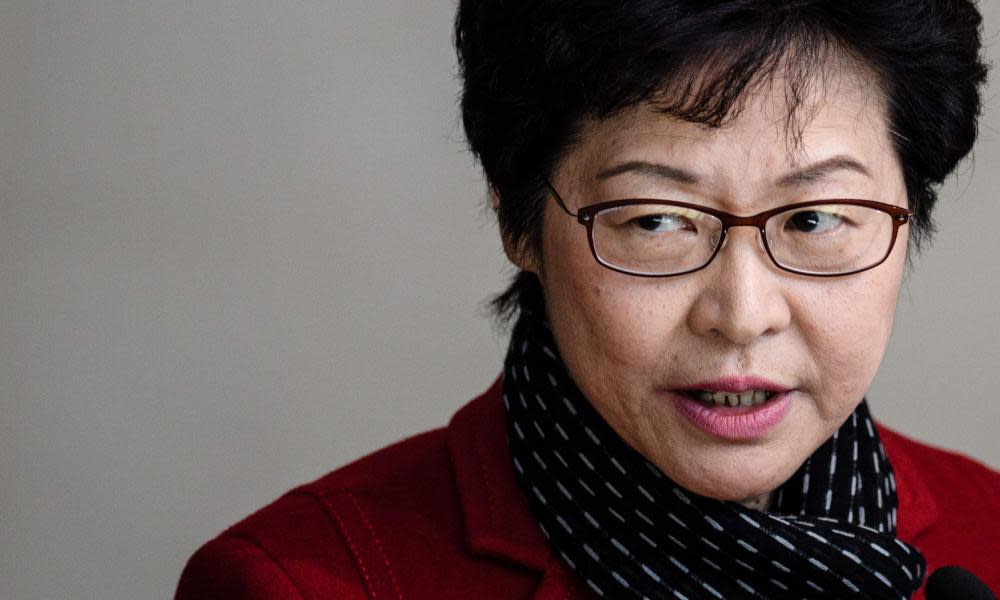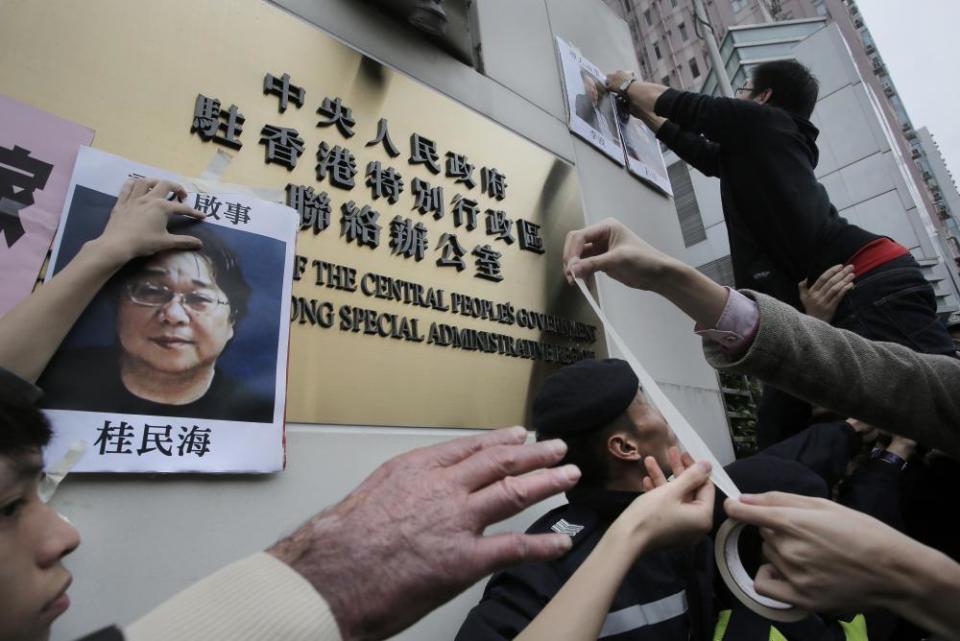Hong Kong's new chief: detention of booksellers in China not our concern

The kidnapping and detention of a group of Hong Kong booksellers is of no concern to the city’s government, its new leader has said.
Five booksellers associated with Hong Kong-based Mighty Current publishing were detained two years ago by Chinese police, with two of the men spirited across borders by plainclothes agents.
The case sparked international condemnation and protests in Hong Kong, and added to fears that the city’s autonomy was eroding.
But Carrie Lam, who is to be sworn in as Hong Kong’s chief executive on 1 July, said the matter was purely a concern for mainland authorities.
“It would not be appropriate for us to go into the mainland or challenge what happens on the mainland,” Lam said in an interview with CNN, adding that the booksellers case “has to be dealt with in accordance with the mainland’s system”.
Hong Kong was handed to China by Britain in 1997 and was allowed to maintain many freedoms, including separate laws, legislature and government, under a framework known as “one country, two systems”.
Under that framework the chief executive is supposed to represent the views and concerns of Hong Kong residents to Beijing, and Chinese police are prohibited from operating in the city.
Hong Kong is the only place in China where there is any degree of freedom of expression, and has given rise to a colourful publishing industry focusing on salacious, albeit thinly sourced, exposés of China’s leaders.
Lam was elected in March in a vote that allowed only 0.1% of Hong Kong’s eligible voters to cast a ballot. She won over an election committee packed with Beijing loyalists, despite consistently trailing in opinion polls.
One of the missing booksellers, Swedish citizen Gui Minhai, was taken from his flat in Thailand and remains in custody. The four other detained men were later released.
“My father’s case is only one of many that illustrate the death of the rule of law in Hong Kong,” his daughter, Angela Gui, wrote in the Guardian this week. “The reality at present is that what happened to my father can happen to any Hong Kong resident the mainland authorities wish to silence or bring before their own system of ‘justice’.”
In January 2016, China state television broadcasted an alleged confession by Gui, who said he had returned to China because of his suspected involvement with a hit-and-run in 2003. Neither his family nor Swedish consular officials have been able to visit him.

Lee Bo, a British citizen, was also taken to China, spirited out of Hong Kong by Chinese security agents.
In a biannual report on the state of Hong Kong, the Foreign Office determined Lee had been “involuntarily removed to the mainland without any due process”. According to Hong Kong police, Lee said he had travelled to China of his own accord to assist in the investigation into Gui.
Only one of the booksellers has spoken publicly about his time in detention in China. Lam Wing-kee was held in solitary confinement for months after he crossed into the Chinese city of Shenzhen, just across the border from Hong Kong.
Police forced him to confess to selling banned books, but he eventually fled on a one-day trip to Hong Kong where he was meant to collect evidence against himself.
The practice has not only targeted booksellers. In January, a Chinese billionaire was abducted from his apartment at the Four Seasons in Hong Kong and taken to mainland China. He has not been heard from since.

 Yahoo News
Yahoo News 
